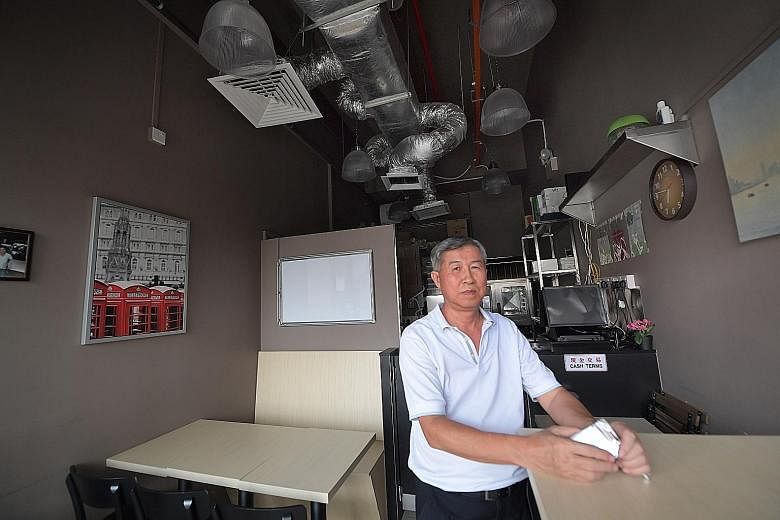Not all premises sold as a restaurant space come equipped with an exhaust system that allows for cooking with heavy heat.
Businessman Chua G.S. found that out after buying a 21 sq m unit at the two-year-old WIS@Changi in Changi Road for about $3,500 per sq ft. It was his first restaurant space purchase.
The unit was advertised by developer RP Changi as a restaurant but Mr Chua was surprised there was no exhaust system. As a result, he said, he lost a potential tenant earlier this year who backed out after the National Environment Agency (NEA) did not grant him a licence for a stall.
Mr Chua, 63, said the 16 commercial units in the freehold building were described as "restaurants". He added: "When you hear the word 'restaurant', do you not assume that it is a place where you can be served warm food?"
He and six other owners are spending about $25,000 in total to retrofit their units, which range from 17 to 30 sq m, with exhaust systems.
The Urban Redevelopment Authority, which manages land use, defines a restaurant as one whose primary purpose is the sale of food for consumption on its premises. These include snack bars and fast-food restaurants, and exclude bars and canteens.
It does not specify infrastructural must-haves for the various uses. Instead, this is governed by the NEA, which manages food licences.
Regarding exhaust systems, the NEA said all food shop operators "conducting cooking activities that generate fumes and smell (have) to ensure all fumes and smell are extracted immediately and treated with an air cleaning system".
Mr Teo Hong Lim, chief executive of Roxy-Pacific Holdings of which RP Changi is a subsidiary, said: "It is not mandatory for all restaurants to have exhausts, and at the end of the day, WIS@Changi tenants are still able to sell food."
He added that those who wish to do heavy cooking can still install an electrical exhaust system.
Most of the units operate as simple cafes. When The Straits Times visited the building last fortnight, the mix included three bakeries, a takeaway pizza cafe and a juice bar.
International Property Advisor chief executive Ku Swee Yong advised investors to seek the help of a property agent with relevant experience in the sector they are interested in, whether they are looking for a prime retail spot, industrial factory or food and beverage unit.
Mr Chua hopes the incident will lead agencies and developers to spell out the different requirements pertaining to different types of units more clearly.


